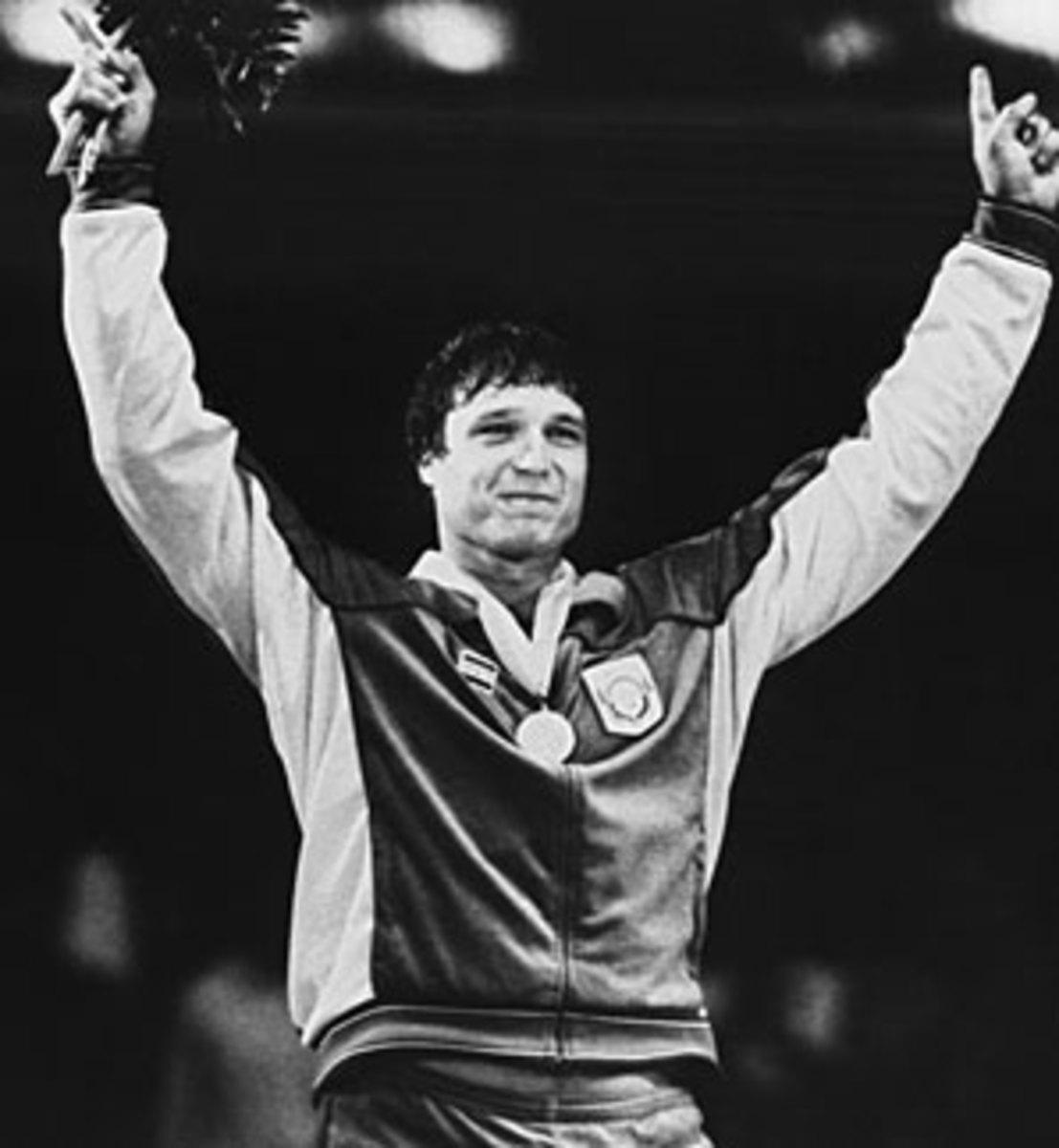Jeff Blatnick, Olympic gold medalist and MMA pioneer, dead at 55


Olympic wrestling gold medalist and mixed martial arts pioneer Jeff Blatnick died Wednesday due to complications from heart surgery, reports WNYT out of Albany, N.Y. Blatnick was 55 years old.
A native of Niskayuna, N.Y., Blatnick blazed a trail of athletic greatness all the way to America's first Greco Roman wrestling gold medal (along with Steve Fraser) at the 1984 Games in Los Angeles. What made Blatnick's achievements that much more gripping was that he'd been diagnosed with Hodgkin's lymphoma two years earlier and beaten the disease. He is survived by his wife and two children.
Sharing his inspiring Olympic journey, Blatnick became a successful motivational speaker, as well as an active volunteer for civic organizations like the American Cancer Society, the YMCA and the Special Olympics.
Blatnick also served as an Olympic wrestling analyst from 1988 through 2012, calling the Games and other major wrestling events for NBC, ABC, CBS, ESPN and others. It was Blatnick's early analyst work that landed the burly, 6-foot-2 commentator cageside at UFC 4 in 1994 alongside future NBC sports anchor Bruce Beck and retired NFL running back Jim Brown. Blatnick provided play-by-play commentary for every UFC event up to UFC 32 in June 2001.
Blatnick had an immediate enthusiasm for MMA, particularly for amateur wrestlers who'd made the cross over into the new and often misunderstood sport. Blatnick's willingness to affiliate himself with MMA at that time was a rare boon for the sport as it fended off political detractors bent on exterminating it before it could find any permanent roots in America.
Although an ace at identifying and describing the wrestling elements utilized in MMA, Blatnick graciously became a student of the sport's other intricate disciplines, like jiu-jitsu, and would often train with fighters at events to expand his knowledge.
With perennial MMA referee "Big" John McCarthy, Blatnick can be credited with giving the sport its name in 1996 (it previously carried the more menacing moniker of "no holds barred") and for relentlessly implementing that name during UFC pay-per-view broadcasts until it caught on.
Following the pivotal UFC 20 in 1999, McCarthy and Blatnick together drafted guidelines that led to the inclusion of rounds and judging criteria.
In April 2001, Blatnick was among a select gathering of promoters and regulators who met with the New Jersey State Athletic Board to discuss and formalize a universal set of rules for the burgeoning sport. The meeting produced the sport's Unified Rules, which are widely recognized and utilized by nearly every MMA regulatory body throughout North America today.
When Zuffa LLC purchased the UFC in early 2001, Blatnick was not hired to continue on with its revised broadcast team.
In 2004, the NJSACB licensed Blatnick as an MMA judge and he worked 10 shows a year for the regulatory body, overseeing bouts in the UFC, the International Fight League, M-1 and Bellator Fighting Championships. NJSACB counsel Nick Lembo said Blatnick wouldn't be assigned to an event only if his prior commitments as a high school wrestling coach or NCAA wrestling commentator precluded it. Blatnick was also licensed as an MMA referee until 2008.
Lembo said Blatnick was also charged with teaching shadow judges, who worked their way up through the state's amateur MMA program. Blatnick also conducted judging and wrestling seminars for new officials, said Lembo.
"The New Jersey State Athletic Control Board has lost its anchor Judge, the world has lost a man of honor and integrity, and I have lost a dear friend who I cannot replace," Lembo said.
Blatnick was also a man of great fortune, having survived an airplane crash, three major auto wrecks and two bouts with cancer, according to his website.
In his final years and months, Blatnick was a staunch advocate for the legalization of MMA in New York State, speaking at any given occasion with legislators and others who could influence the sport's passage in his home state.
In his 2011 memoirs, iconic MMA referee McCarthy acknowledged Blatnick as one of the unsung heroes of the MMA movement.
"Jeff, you came into our sport with an open mind and was always willing to help," McCarthy wrote. "You did more than most people realize, and you will always be someone I respect and am proud to call my friend."
